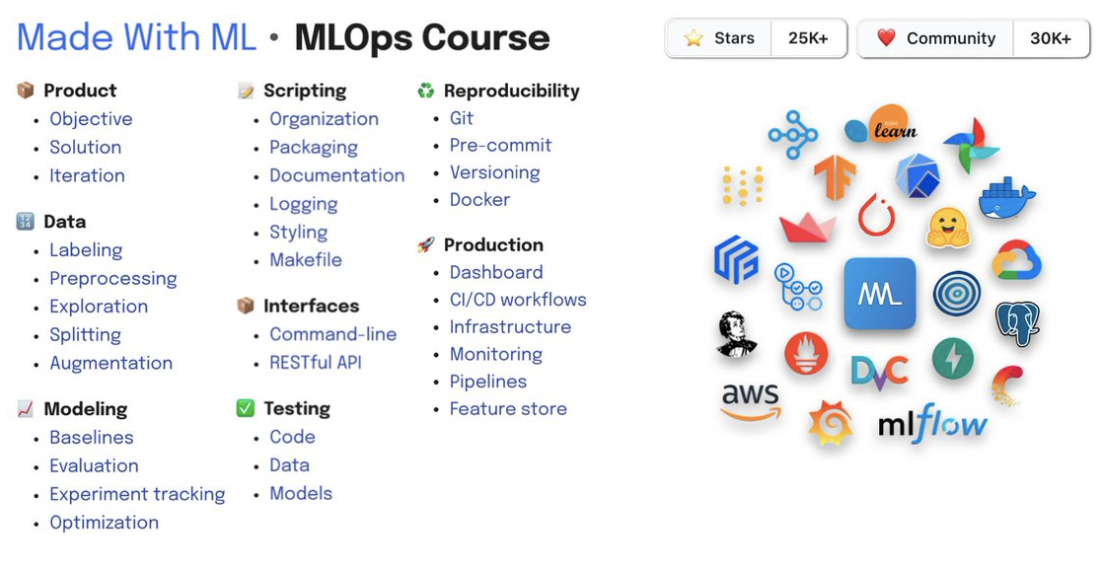Hello, I am sharing einops library, an MLOps course, and ACM Turing Lecture on deep learning for AI for this week in machine learning.
Writing better deep learning codes with einops [github][website]
Einops (Einstein-inspired Notation for Operations) is a simple, flexible, and powerful tensor operation library for more readable codes. This library supports many backend such as numpy, pytorch, tensorflow, jax, gluon, tf.keras, cupy, chainer, and mxnet.
Using this library, we can focus on the input and output interface of tensor operations, rather than how it is computed, making our code more readable and easier to maintain. It also reduces the chance of making unnecessary errors in our code. Watch the short video below, and pytorch with einops comparison to get a better sense of how to make our code more readable with this library.
MLOps Course [website][github]
Goku Mohandas created a project-based course on how to apply ML to build production grade product. The course walks through product development and iteration cycle. It covers product planning, data transformation, modeling, reproducibility, scripting, testing, and production. More details on lesson highlight can be seen in Goku’s tweet thread.

ACM Turing Lecture: Deep Learning for AI [article]
In this article, Bengio, LeCun, and Hinton review the rise of deep learning in AI, describe recent advances in deep learning, and discuss the future directions of deep learning in AI. The rise of deep learning attributed by deep architecture, unsupervised pre-training, success of Rectified Linear units (ReLUs). Deep learning also leads some breakthrough in speech and object recognitions. Several recent advances in deep learning are briefly mentioned in this article: Attention and transformer architecture, unsupervised and self-supervised learning, contrastive learning, and variational auto-encoder.
The discussion on future of deep learning suggests several improvement based on some current AI limitation compare to human learning such as: ability to generalize faster without too many trials, and adaptability and robustnes to changes in distribution (out-of-distribution generalization). In addition to this, applying deep learning on tasks which require a deliberate sequence of steps also another exciting future direction.
Stay safe and see you next week!